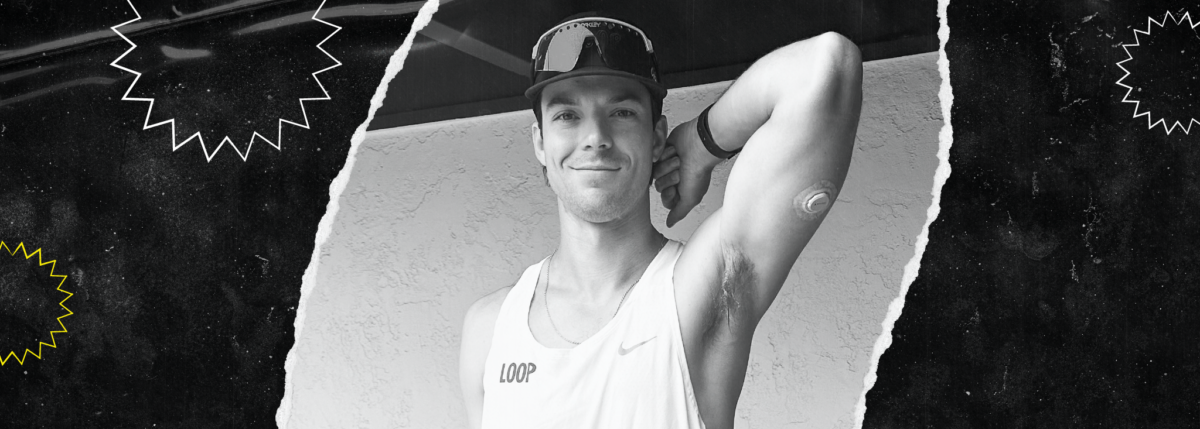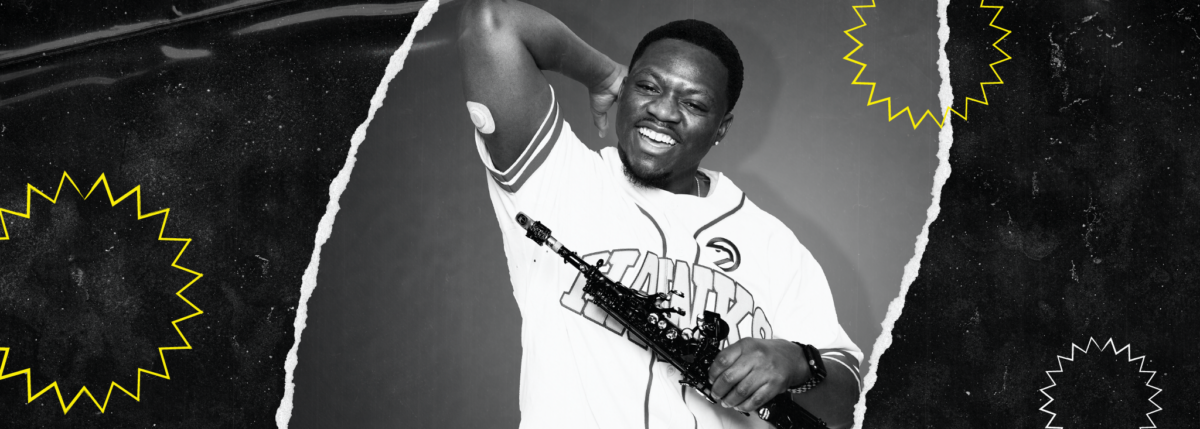Interview with Country Music Songwriter Steve Seskin: Managing Diabetes on the Road
Written by: T'ara Smith
10 minute read
April 25, 2019
Country music songwriter, Steve Seskin, talks about three-decades long life with type 2 diabetes and how he manages it while on the road 150 days a year.
Country music songwriter, Steve Seskin, talks about three-decades-long life with type 2 diabetes and how he manages it while on the road 150 days a year. Seskin has written seven number one songs, including Grammy-nominated “Grown Men Don’t Cry” by Tim McGraw, and “Don’t Laugh at Me” winning NSAI Song of the Year and Music Row Magazine Song of the Year in 1999 as recorded by Mark Wills.
 When were you diagnosed with type 2 diabetes, and what was your first reaction?
When were you diagnosed with type 2 diabetes, and what was your first reaction?
I was diagnosed 30 years ago when I was 35 years old. My first reaction was a little bit of shock, but also not being totally surprised, because it ran in my family. My grandmother and mom were diabetics. I had been having the classic symptoms of being dehydrated and I could never drink enough liquids—they call it the drink and pee syndrome. But, it’s not always something that you recognize as a symptom. But, my doctor immediately said, “let’s test for diabetes.” I was not happy and I resented it because I was 35 years old and I had never really been sick. All of a sudden, I feel like I think the biggest thing for me was feeling like I’m sick and it’s every day—it’s forever. That’s how I looked at it. I think it’s what a lot of newly diagnosed diabetics go through. It’s resentment and not a denial, but just the unwillingness to maybe do what you need to do at first. Thinking back on it now, I think I was probably diabetic for several years before I was diagnosed.
Why do you think that you had diabetes for several years prior? Did anyone else notice?
Because I had those symptoms for at least two to three years before I even mentioned it to anybody. No one else really noticed. I don’t know how the physiological workings of it, but maybe it was coming on slowly because when I was finally diagnosed, the syndrome was in full bore.
What was your first plan of action? Did you take it seriously at first, even though you’d seen it run through your family?
To be honest, I did not take it super seriously. I thought I could just pay some sort of homage to it, but not do what, I later found out, I needed to do. Through the 30 years or so that I’ve had it, I’ve been through every incarnation of good control, not good control, medium control and fooling myself into believing I was in control. I’ve even lied to my wife about my blood sugar, which I never lie to my wife, but there have been times when she’s asked me over the years, “What was your blood sugar?” And, I’m like, “Oh, it was 120” when it was 220. Not often, but if I ever did that, it was because it was way too high, and I didn’t want to admit it.
In those periods of resentment, did you ever feel shame or stigmatized for having type 2 diabetes?
Not so much as shame attached to it. I think it’s such a prevalent disease in our society that there are misconceptions about it. When you mentioned to somebody, “Oh, I’m diabetic.” They go, “Oh, so you can’t eat sugar.” That’s the classic [misconception]. Not that that’s not true, but most people don’t have a good education about simple carbs and all the other things that affect your blood sugar. But, it wasn’t so much as shame as not wanting to be a burden on people in terms of you go over for dinner.
Nowadays, people call up and say, “Hey, I’m coming over for dinner and I’m gluten-free and I’m this, and I’m that.” Back in the day, we never said, “Oh, by the way, I’m diabetic.” You just decided that you’d go over to somebody’s house for dinner, or you’d make a choice of where to go out to eat, and you’d work around it. But, in the end, you’re talking about, “Oh, we’re going to this amazing pizza place.” Your line should be, “Well, do they have salads there?” Instead, it’s, “Oh, okay. That’ll work.” At least that was me.
Plus, not even dealing with the notion that, well, could we make a different choice? Because I don’t really want to go to an amazing pizza place where I can’t really have any pizza, or I can have one slice of pizza and take the little extra insulin and have to explain why I’m only eating one piece of pizza. That stuff comes up every single day, but it’s what you do about it. But, I think people are more accommodating than you think they’d be if you let them know what your needs are. Most people, almost everybody I know wants to be accommodating. They just don’t always know how to do that. They need a little help on the education side. So, but, I think that’s true in general of dietary type things. Most people who aren’t forced to learn about food don’t bother doing it.
Did you receive any diabetes education from your doctors or have to see a diabetes educator or a nutritionist? How did you learn more about diabetes?
Absolutely, I did. I had over the years some really good doctors. Over the years, I had some really good education to the point where I totally understand at this point and have for a long time exactly what I need to be doing. That doesn’t always make it easy to do, but I’m an expert. I could give a talk somewhere about a diabetic diet.
What is it like to be a musician who’s always on the road with diabetes? What challenges do you face? How do you overcome them?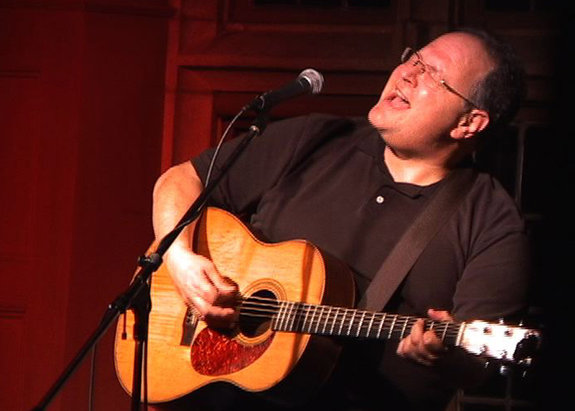
I think being on the road almost 140 days or 150 days a year presents problems if you don’t address it. So, the typical answer would be there are simple carbs everywhere. When you’re in airports or you’re racing from one thing to another, the choices that are easily obtainable all involve stuff that I shouldn’t be eating.
There’s not really much that I can eat unless I think about it in advance. There are more choices now than there used to be, for sure. But for me, what the road involves is planning ahead. For instance, if I have a writing session where I’m going to be busy for eight hours in a row and we’re going to take a break for lunch, I’m the guy that brings my own lunch. I’m either having a salad or a low carb tortilla that I’ve put some protein or vegetables in.
Usually, there’s an option for a salad at most places. But I try to avoid going to a place where I would want to eat what they’re well known for. I’d rather eat a salad at a salad place. First of all, it’s probably better, and it probably has a more varied offering. Secondly, I don’t have to deal with, “oh my god, look, everybody is eating [for example] chicken pot pie.” I tend to try to keep myself out of trouble. It’s hard on the road because at home, I prep my food pretty darn religiously.
There is something, by the way, to be said for when you don’t eat a lot of simple carbs. Your taste buds change, and the craving for them is reduced. But, I still find it helpful to not always have it in front of my face. Why do that to yourself? So, eating at home is just a lot easier than on the road, but eating well on the road is not impossible. If I’m staying somewhere for a period of time I try to stay at a friend’s where I do have access to a kitchen. But when I don’t, I just seek out places that make it easy for me to eat well and stay on task. I have to say, it’s a lot easier now than it was 15, 20 years ago.
Would you recommend meal prepping? What’s your process like?
When you can, for sure. When you go out, just learning that honoring your diabetes is more important than eating something that you know doesn’t honor it. So, even when I’m faced with the situation I try to avoid, which is going to a really great restaurant but that features things that I shouldn’t eat. There’s always something on every menu. It’s trying to rise above that feeling that you’re being deprived and saying, “No, I’m not being deprived. I am taking care of myself, and that’s more important.” Then, obviously, when you do cook, to make things interesting enough and tasty enough to not feel like you’re deprived all the time.
I have a refrigerator full of Tupperware with mushrooms, onions, red peppers, celery and cabbage ready to go for big vegetable meals or stir fry with a little bit of chicken in it or a salad. I make soups all the time. I’ll even make things that have some slow acting carbs, like lentil soup, black bean soup, or chili to try and eat some of those carbs. I stay away from the simple carbs. It’s a little more difficult when you’re out and you’re surrounded by people who don’t have to deal with this. Then, you feel self-conscious when you have to deal with it, even though it’s probably not those people who are making you feel that way and it’s mostly in your head.
Who supports you with diabetes management?
My wife and son are very supportive. She’s not diabetic but we don’t keep, for instance, any cookies in the house. Her and my son know that in deference to me, they’re going to make some changes. They eat their sugar and things they might want outside of the house. I don’t demand that of them, but they are happy to do it. My wife can buy a pint of ice cream and spend a month eating it. I swear to god—she can just go over there, take two tablespoons, and then next week, she’ll have another two. I’m like, “Wow, I could not do that.” It would literally be calling my name. I’ve always had a sweet tooth for certain things.
[My wife] does try to follow pretty much the diet that I have, although she loves her chocolate. She has things, but if she brings them into the house, they’ll be in limited quantities. We found there’s this one frozen chocolate thing. I forget what it’s called right now—Chloe’s, I believe. They have sugar in them, but very little. They’re mainly fruit and chocolate. They have 50 calories, and somehow I can have one of those every three or four days. She’ll have more than that, but they don’t call to me at night.
My son? He eats whatever he wants but he’s aware that I’m diabetic. Interestingly enough, the other side of that over the years, and I don’t know if diabetics deal with this as much as I have, where you know how if you’re running high, which is these days, I’m not. I’m in pretty darn good control, but the period of time that I wasn’t, sometimes my family would say “Oh, go test your blood sugar. You’re probably high because you’re kind of annoying me now. Or, you’re testy. Your patience level is not what it usually is.” Usually, they’re right, by the way.
 What do you think type 2s should always do?
What do you think type 2s should always do?
One thing I think that’s super important that most diabetics don’t do enough, including myself, with the exception for the last two months is test their blood sugar. I’ve been in really good control for almost three months now. I test all the time.
I know a lot of diabetics who wake up in the morning. They take their fasting blood sugar, then literally, they don’t take it again until the next morning. That’s not cool. I probably test four or five times a day, before every meal and after some meals. When I first got back in control, back in December, and when I say control, I was between 140 and 240 often. I was taking way more insulin to get to any numbers close to 120. Whereas now, for instance, I’m taking way less insulin, and I’m running 80 to 120.
I’ll wake up with fasting blood sugar of 85, and it doesn’t feel low anymore. Whereas when you’ve been running high and go down to 85, you feel like you’re 30. In other words, physiologically, your body feels like, oh my god, I’m really low. Then, you go, no you’re not. You’re actually normal blood sugar, but since you’ve been running at 150 and 60 and 70, you’re now feeling like it’s really low.
What is our goal as diabetics? Our goal is to be through diet, exercise and medication and, or insulin to be a non-diabetic to run just like everybody else does, between 75 and 125. That’s our goal. Is it a task? Absolutely. But, as I always like to say, it’s not cancer. It’s a disease that one can live with if you honor it. It’s going to be okay. If you don’t, it’ll kick your butt. So, I think testing is really important. One thing I would advise people to do also is if you’re not in great control, but you’re seeking to get there, one thing I did is I would test 10 times a day in the early years when I really tried to understand the disease. You know why? Because I would test after every different kind of food meal to learn the reaction of my body to different things.
How did your body react to different types of foods?
So, as we all know, there’s a difference between eating 300 calories, let’s say, of lentil soup, and eating 300 calories of cake. What’s the difference? Well, you might say there’s no difference in terms of the scale. You’re taking in 300 calories. But, the cake raises your blood sugar immediately, and the complex carb slowly enters your system and does not have anywhere near the impact as the cake. So, I used to test to just learn about, well, how much of what can I eat? Even with that, it wasn’t the notion of eating a lot of simple carbs. It was just how can I use carbohydrates in my diet that are not just vegetables.
The bean family comes to mind. Well, you can’t eat all of that you want. That’s not like lettuce. But, on the other hand, it’s very healthy, and if you measure how much you’re using, you can have it. The other thing that I do a lot of is eating six to eight small meals a day rather than three meals a day. I always look at it as ‘You know what? I should only have half of this right now. In two hours, I can have the other half of this so that I’m never impacting my blood sugar in a negative way.’
Do you have any favorite restaurants that you like to go to that you think, or that help you eat well on the road?
Vegetarian places or there’s a couple of chain things that are salad places, which you could make your own salad and add something to it. So, I go to a lot of places like that, and I just don’t choose the few things they have that aren’t good for me. So, if the meal comes with a roll, I just don’t have the roll. I don’t think every diabetic has to approach it this way, by the way. I know some people who are diabetic who eat simple carbs in moderation. I am not one of them. I find it easier to treat the whole category of simple carbs, bread and potatoes and rice and sugar and cake and ice cream like an alcoholic. So, you cannot approach food in general like an alcoholic who swears off alcohol consumption.
I find it easier to deal with it that way than to have a little bit. I don’t sit in judgment of anybody who says, “Come on, what’s the harm?”. If I have one croissant, that’s one too many and I’ll be wanting three by lunchtime. That’s just what I found. Whenever I’ve tried it, it’s very analogous actual to someone with an alcohol problem, because it’s the one drink, and I’ve fallen off the wagon sort of deal.
What misconceptions about type 2 do you think people without diabetes have? Is there anything people with type 2 diabetes should know?
I think even diabetics, some of them need a lot more education than they have, or they need to believe the education that they get. They don’t necessarily implement it into their lives. But I think the biggest misconception, in general, is the effect of exercise, food and medication and they may not understand that it’s a three-pronged attack. So, people don’t realize if I’m going on a hike somewhere, that I need to bring something with me just in case.
I trust how I’m feeling. At this point, if I’m going low, I kind of know it. I mean, I could tell you what my blood sugar is within 20 points at any time. So, I know the difference between 80 and 160. I might be off by a little bit, but if I wake up in the middle of the night, and I know that I’m going low, I’m certain of it, and I’ll take my blood sugar, and I’ll go, “There we go. I’m 62.”
I also think a lot of people feel like taking insulin is the worst fate you can possibly face. When people ask Oh my god, you have to give yourself shots, doesn’t that hurt? I reply ‘no, not after 30+ years.’ It doesn’t really hurt. It hurts more to prick your finger to test my blood sugar than putting a needle into my abdomen.
I start every day with a new syringe and remember when I used to go find somewhere to take my insulin like a hospital room. First of all, there’s probably more germs in a hospital room than my own bathroom, but now I’m just like, “Oh, I’m in the car, or I’m walking to the restaurant. Oh, I better take my insulin.” Bam, done. I’m not shy about it at all. If I forgot to take it and I’m sitting with somebody at a restaurant I might ask if they’re weirded out by me taking my insulin. No? then I mention this will just take a second.” Bam, done. I’m much more casual about this part of it nowadays and haven’t had any bad experiences in all these years.
Where can people learn more about you and your work?
People can learn more about me at SteveSeskin.com.
Photos courtesy of Steve Seskin at SteveSeskin.com

Author
T'ara Smith
T’ara was diagnosed with type 2 diabetes in July 2017 at the age of 25. Since her diagnosis, she focused her academic studies and career on diabetes awareness and living a full life with it. She’s excited to have joined the Beyond Type 1 team to continue her work as the project manager for Beyond Type 2. Outside the office, T’ara enjoys going to the movies, visiting parks with her dog, listening to BTS and cooking awesome healthy meals. T’ara holds an MS in Nutrition Education from American University.
Related Resources
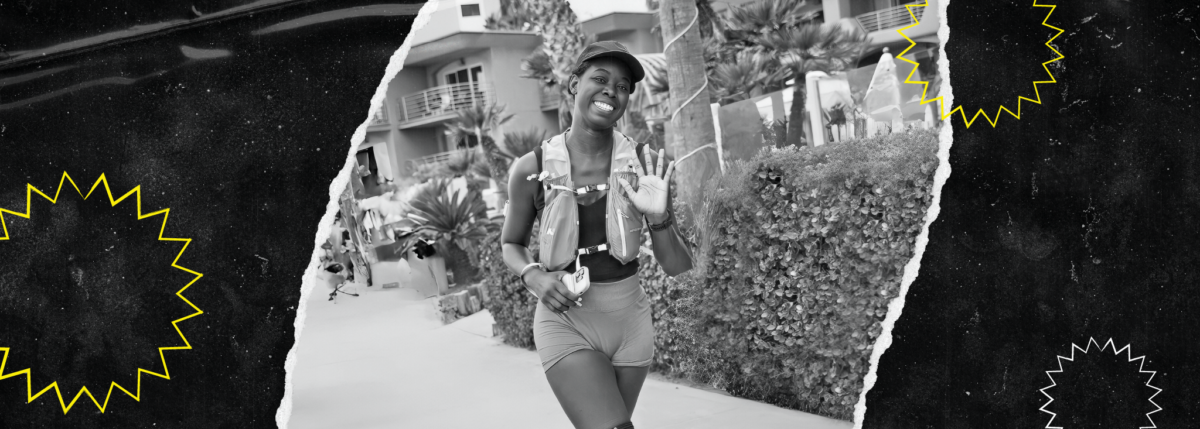
Danica Collins not only prepared for one of the most challenging physical events of her...
Read more
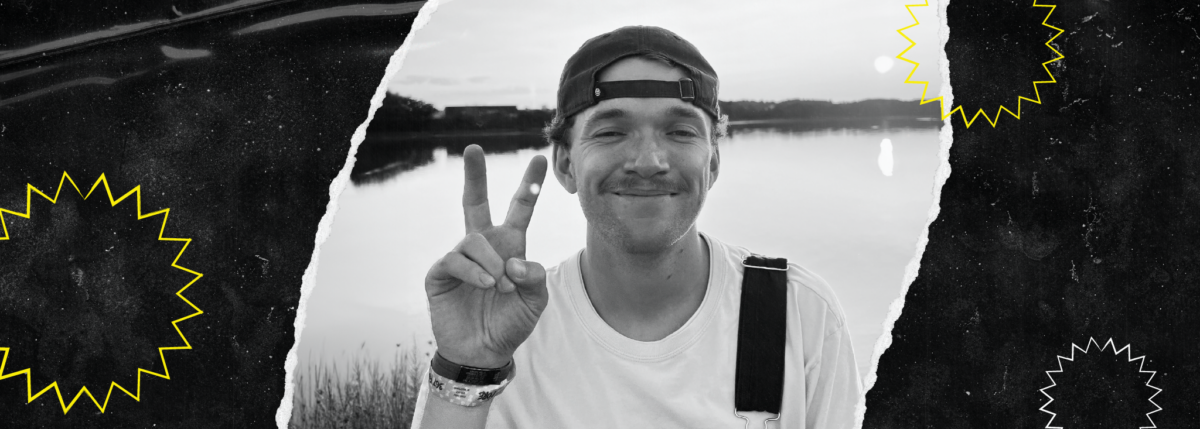
Beyond Type 1 is spotlighting inspiring athletes with type 1 diabetes as they prepare for...
Read more
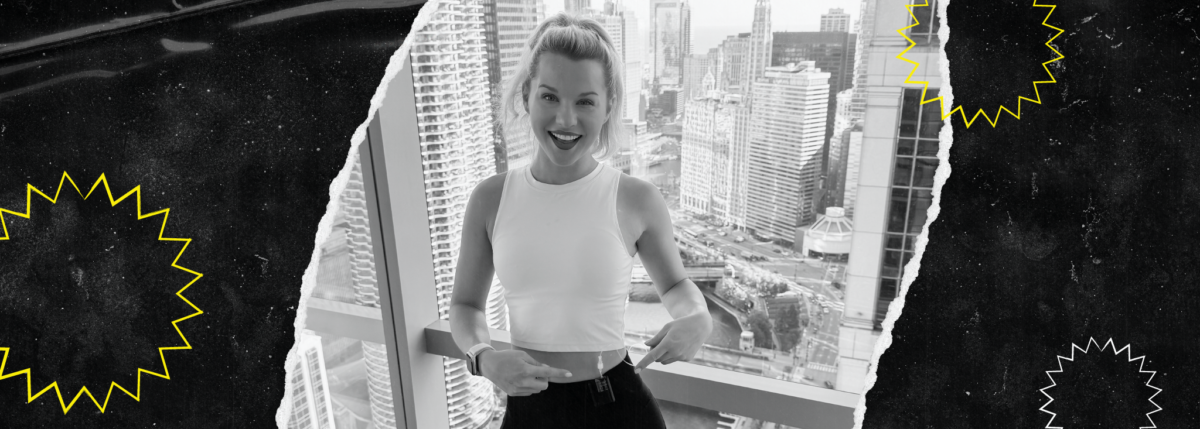
On November 3, 2024, Taylor Rindfleisch of Chicago laced up her running shoes for the...
Read more
